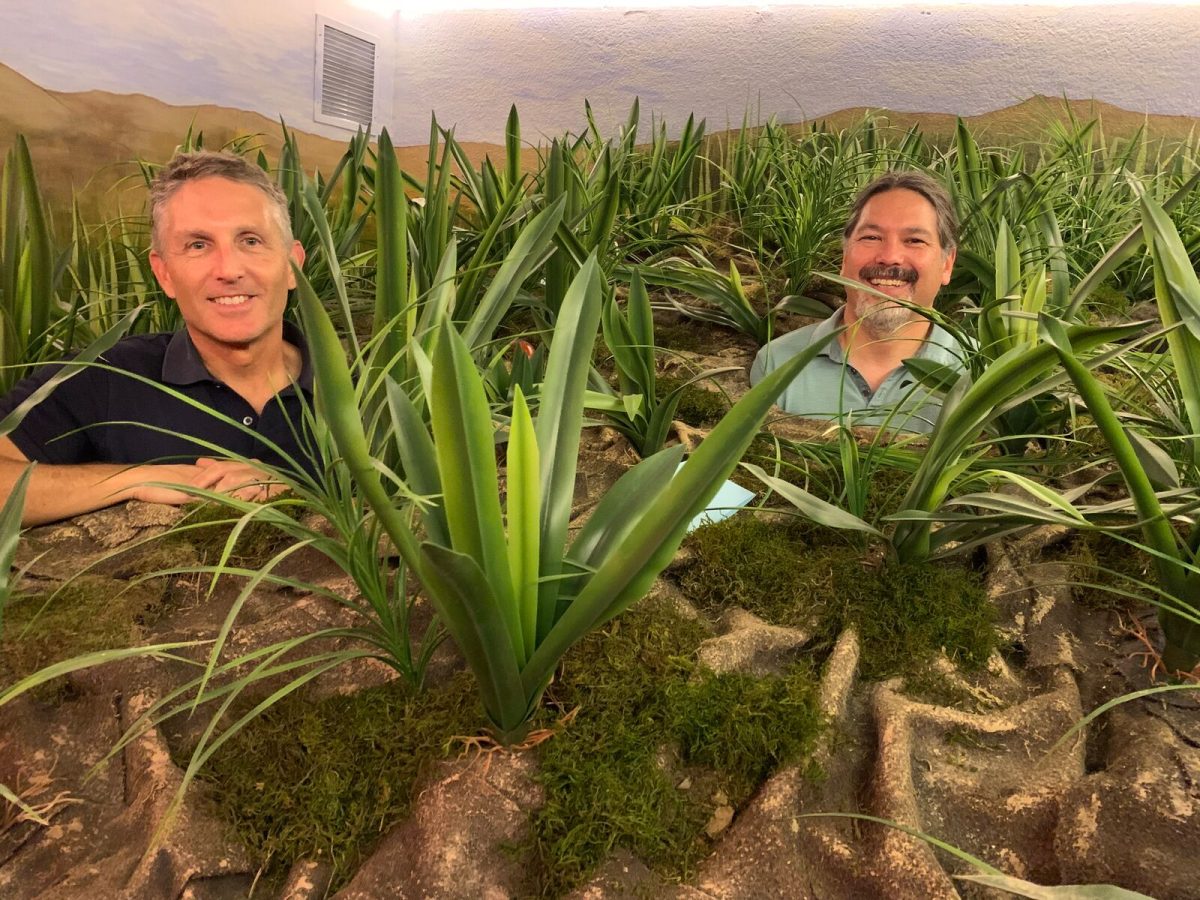
During its 11 years of operation, Studio Grow was a drop-in, educational playspace that saw a generation of Berkeley children pass through its doors. Studio Grow grew from its original Berkeley location to three others in the East Bay.
“Kids who are in junior or high school grew up in this place,” said Tim Alley, Studio Grow’s founder. When Alley sold the company in 2016, the new owner closed the Berkeley location, but Alley kept the lease.
Now Alley has joined two of his childhood friends from Berkeley, James Hopkin and Eric Mittler, to turn the former playspace into a gaming center for adults. Six years in the making, Game On is now open on a limited basis and will open completely to the public in December.
Game On is a new concept in gaming its owners believe is the first of its kind in Berkeley and possibly in California. Each of the six game rooms now in operation (with more to come) combine the critical thinking and physical dexterity of hands-on science museums like the Exploratorium and Lawrence Hall of Science, which were inspirations, with the sensory experience of an art installation. What all the games have in common: a need to cooperate. Teams of two to four players must work together to solve the games’ challenges.
“I’m trying to instill the virtues of discovery and teamwork and grit as part of the outcome of your experience at Game On,” Hopkin said. “Mainly I’m trying to do things that are fun and encourage people to cooperate.”
The founders’ backgrounds seem ideal for such a venture. Alley has experience in education and business. Hopkin, whom Alley called “the great visionary” behind the games, is a computer scientist and puzzle expert. Mittler, “the software guy,” according to his partners, has a specialty in cooperative learning and psychometrics.
Each game has its own unique set of challenges, which can be mental, physical or both. Audio instructions are broadcast upon entering and vary depending on the number of players.
Some of the games are inspired by arcade classics, such as a Whack-A-Mole variation in which players become the moles (but are not whacked in the head). Instead, roots that light up indicate which hole moles should pop out of while the “whacker” presses mole-shaped buttons according to their teammate’s position. Success is based on the number of times players accomplish such moves.
Other games require physical strength, like the Endurance Room, where players climb across hanging ropes to avoid falling into “hot lava.”
Ball Game is a room with two different ball games. In one of them, which resembles a Rube Goldberg machine, a player spins an elephant to push a bar, which traps a ball in a cup, which another player has to lift and get the ball up over the elephant, where it has to be caught by a spring-loaded plunger that shoots the ball into a goal.
In the Arcadia Room, a banyan tree created by set designers at Orinda’s Cal Shakes creates a spooky backdrop to a ball game, reminiscent of the arcade game where balls are thrown into concentric circles.
Still under construction at press time: an escape game and Indiana Jones-inspired game that combines ancient mythology and treasure-hunting.
The owners hope Game On will attract families, first dates and companies hoping to encourage team-building. Cost: $35-$40 per person for two hours of play. (Players under 13 must have a parent/guardian present at all times.) Players must book online.
“For the past two years a lot of us have been alone and on screens,” Alley said. “At Game On the game play experience is real, not virtual. It requires people to come out and work together.”
Game On, 1235 Tenth St. (at Gilman Street), Berkeley. Hours: still being determined. Phone: 510-616-5415.
